Brian Swan as a veteran detective investigated our city’s most shocking murders. Now the Gold Coast’s top cop, he outlines his plan to protect his officers and keep the region safe.
WHY BEING A COP NOW IS MORE DANGEROUS
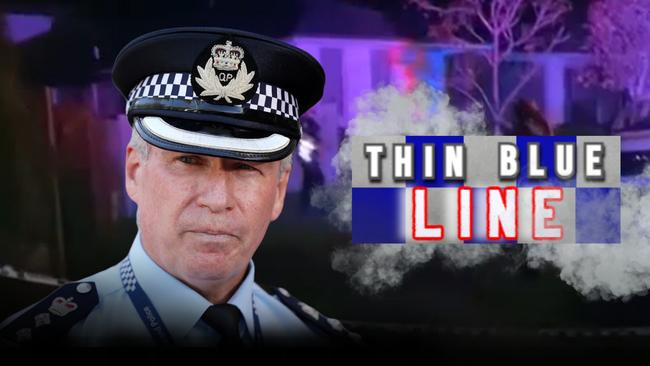
GOLD COAST BULLETIN: You’ve been a police officer since 1984. Is it true that it is just more violent out there now? That’s one of the biggest challenges for the current workforce?
BRIAN SWAN: A lot has changed in the world over the past 40 years, particularly in policing. Our police today are dealing with significantly more complex and challenging situations. There is no doubt in my mind we see offenders and perpetrators prepared to use violence whilst offending. I think policing is inherently more dangerous now than it was when I first joined. However, our police are better equipped and better trained than we were back in the 1980s. In the Gold Coast, the most common calls for service we receive are to domestic violence matters and disturbances. This is a statewide trend. These jobs can be the most time consuming and complex for our frontline police. For me, our greatest challenge is finding
changes to the system in dealing with DV that not only protect victims of domestic violence but also make the administrative process more efficient.
ENCOUNTERING THE MOST EVIL MURDERER

GCB: You’ve been an investigator on many high-profile murders. Tara Brown, a 24-year-old
Gold Coast mother killed in 2015. You were a detective inspector, shocked by her
injuries. What impact do those domestic violence cases have on officers?
SWAN: As a detective in both Logan and the Gold Coast for many years, I unfortunately saw the evillest human behaviour. Every homicide I worked on seemed like a senseless and pointless waste of human life, with impacts on family, friends, and our community in general. The most evil and heartless cases were those that involved victims of domestic violence, especially those involving children. There are many cases I will never forget. Tara Brown’s was one of those cases. Another case that profoundly affected me was the murder of Tania Simpson, her friend Antony Way, and Tania’s little girl Kayla. They were brutally killed by Tania’s estranged husband in 2011. I don’t think I will ever understand what drives people to commit such evil acts. These types of cases have a significant impact on the police involved. We are not robots. We are just ordinary people with families we love and care for. Although we have a job to do, we can’t help but feel some of the pain that victims and families go through at these times.
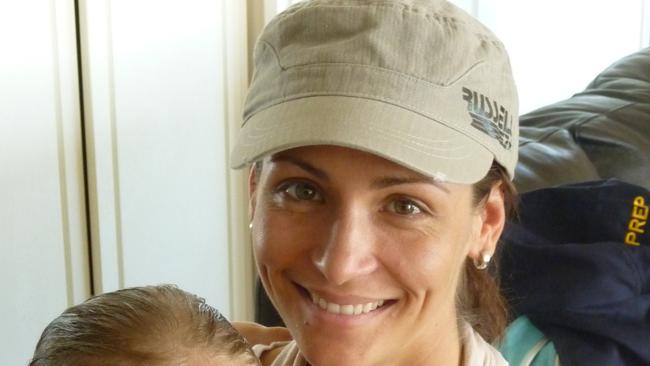
WHY RETURN TO THE STATE’S TOUGHEST MANAGEMENT GIG
GCB: If you fast forward to 2022, you have returned here as the South Eastern Region
Assistant Commissioner. What did it mean to you, returning to the Coast? It’s the most challenging of police districts, some would sidestep a management promotion here, what made you take on the task?
SWAN: I’ve spent most of my career in the South Eastern Region, working in both Logan and Gold Coast Districts. This is where I grew up, where I live and work, and where we raised our family. It meant a lot for me to come here as the Assistant Commissioner. In my view, this is one of the most challenging of policing environments, but it is also the most rewarding. We have a great community here – which is our strength. The attraction for me is the calibre of the police who work here in this region. We have some of the best and most skilled police officers in Queensland in this region. They work hard, are committed, and are very innovative. I have known and worked with many of the officers in this region for many years. They continually amaze me at how good they are at their job.
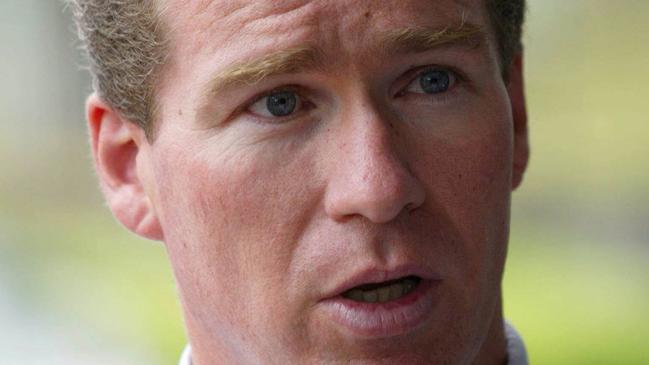
THE PRIVATE PERSONAL GOAL
GCB: In your first interview, in June of that year, you talked about a crackdown on kids,
criminals, bikies and domestic violence offenders. But privately, a key goal you set
yourself was improving the culture and mental health for local coppers. Why did you see
this and set it as a such a high personal priority?
SWAN: This is something I am deeply passionate about. Policing is such a challenging profession. It is mentally, physically, and emotionally demanding. If we want the best police serving our Gold Coast community, we need to support them more holistically. Policing in a region like ours can take its toll on our people, no matter how tough we think we are.
To create a work environment that is healthy, safe, and accountable, we need to ensure that the culture across all our work units is supportive. It’s a no-brainer to me – our members’ health, safety, and wellbeing are paramount and should always be a top priority.
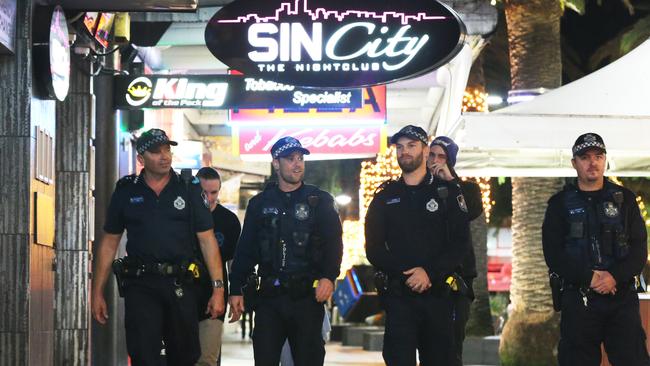
TURNING THE TIDE AGAINST COAST COP BURNOUT
GCB: What were the practical measures you were looking to put in place, to ensure those
on the edge of being burnt out didn’t, and weren’t lost? Are their dedicated police in a
station who look after police?
SWAN: Just over twelve months ago, I assembled a team to assess what works and doesn’t work to support our members and identify areas where we can better care for our workforce. In partnership with the QPS Safety and Wellbeing Division, we decided to look at introducing
better ways to support our workforce and ensure all support services are integrated and aligned
with the needs of our people. We are the only region in Queensland going down this path of
pursuing a more localised and integrated system to support our police. Although it will take time to implement fully, we must start somewhere.
For instance, we currently have Peer Support Officers who are volunteers in each workplace.
They dedicate their time to supporting their colleagues. Research tells us this is one of the most effective support mechanisms we can have in place – mates looking after mates.
We have examined how peer support groups operate in policing, the military and other emergency services nationwide. Our goal in this region is to have the country’s best Peer Support Officer network. We have started expanding this group and have assessed what training and support they need to do this vital work.
GCB: You want to give cops on the frontline a break from the first response area.
SWAN: From time to time, people working in these high-risk areas need a refresher. We are looking at the best ways to give those who need respite a supported way to do other duties quickly. In the long run, our vision is to revolutionise how we manage our injured workers, shifting from a legalistic and procedural system to a more person-centric approach.
We are also dedicated to strengthening the leadership skills of our sergeants and senior sergeants, ensuring they feel supported and equipped to not only care for our members but also hold each other accountable.
This comprehensive strategy is aimed at transforming the culture and leadership of our region, enhancing support for all our members, whether sworn or unsworn.
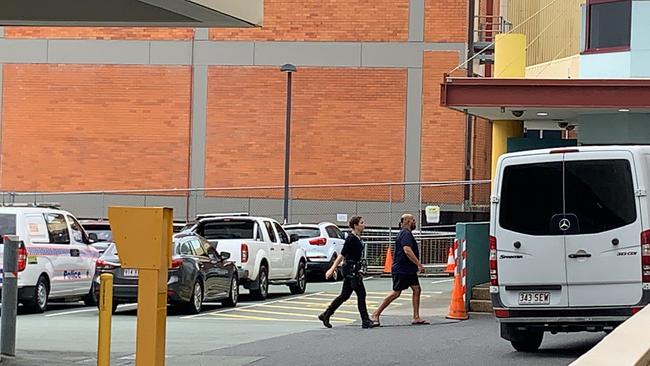
REACTION WHEN MORALE DIPS TO LOWEST LEVEL
GCB: The Bulletin in its Thin Blue Line series has published the Working for Queensland
survey, from last October. Did those results surprise you?
SWAN: In many respects, this didn’t surprise me. The results for our region were in the same range as other regions. Let’s look at how our operational environment has evolved since coming out of the Covid-19 pandemic. We have seen escalations in demand, with DV as well as crime issues and other aspects of community safety. Despite these challenges, there were some positive results for the region, indicating that there are workplaces with higher morale and a strong leadership culture. This is something we should focus on and leverage into the future.
YOUR RESPONSE TO THE CRISIS
GCB: What did you do on receiving those results? Was a review put in place?
SWAN: In my view, the survey results have reinforced the need for an integrated and holistic approach to supporting our members and their wellbeing, but just as importantly, supporting the leadership at all levels in our region. Our plan (described briefly above) relates to better
supporting our police regarding their wellbeing. A healthy workplace culture is not only about
being supportive but also about holding each other accountable. There are many very positive
aspects to what some refer to as “police culture”, and I believe this is true of our Gold Coast
Police. I am very optimistic about the future for several reasons, mainly because I know we
have good people in the South Eastern Region. Not least among these is that our new
Commissioner (Steve Gollschewski) has stated he wants our focus to be community safety,
supporting our members, and making them feel supported. You don’t achieve one without the
other.
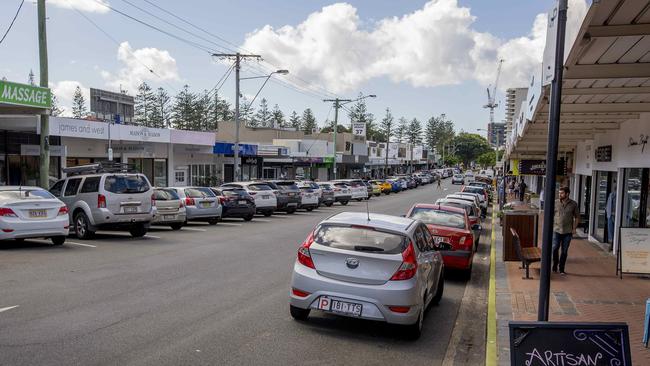
GCB: Southern and central coast police are suffering the highest rates of burnout and
stress. Morale is higher on the beat in the entertainment precincts of Surfers Paradise
and Broadbeach. You are a regular visitor to stations. Did you pick up on these trends?
SWAN: One thing I like about our police is their honesty. When I visit different stations, people will let me know what they think. We have significant challenges and stressors in various parts of the district, with Southport being our busiest station. Some stations have always been considered busy – and the Central Patrol Group has undoubtedly been in that category. One thing I notice when I visit those stations is a strong culture of teamwork – they work well together and take pride in their work, even though they are swamped.
One area that needs improvement is achieving the right balance in allocating resources among
the patrol groups so that they can better support each other.
FINDING ENOUGH COPS TO BOOST THE SOUTH
GCB: The district’s Chief Superintendent has stated officers rise into the southern
Gold Coast (Burleigh) with staff and resources. Are you able to say where the staff and
resources will come from, given Broadbeach station has an entertainment precinct, the
division workload and calls for service, as well as Pacific Fair shopping centre to
currently police.
SWAN: The district has co-ordinated the approach to the Burleigh Heads area using resources from across the entire district. This includes police from Rapid Action Patrols (RAP) and various stations and units. This approach ensures we can balance the response across multiple units and stations. This approach has worked so far, but we must monitor and adjust our plans as circumstances change. While the statistics tell us certain crimes have been dropping, we know it is more than just statistics – it’s about the community feeling safe and doing their lawful business safely.
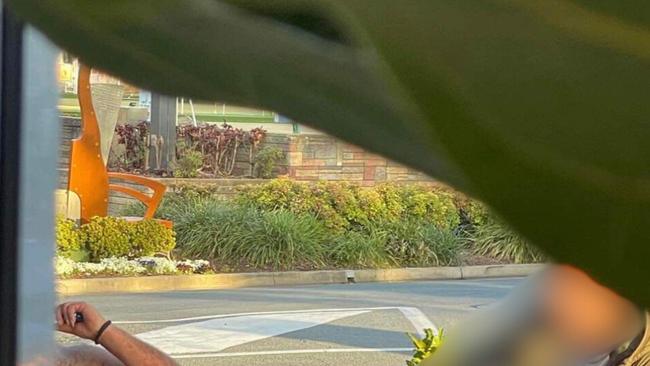
GCB: In relation to the demands of the flexible police resource, Rapid Action Patrols, in
supporting operational needs of police divisions coast wide. Is there a current
commitment to increase the policing numbers of the unit, due to work demands?
SWAN: We are fortunate to have Rapid Action Patrols (RAP) supporting policing on the Gold Coast. This is the largest unit of its kind in the state. As part of the Gold Coast Policing Futures program, the district has been reviewing the operations of RAP to ensure the team continues to support Gold Coast police effectively. The Gold Coast Policing Futures program looks at the balance of stations and work units to see if they are best placed, not just for now but, importantly, for the future. Whether more police are attached to RAP or not forms part of that review, as well as how to use this vital team to support district operations.
FIXING BURLEIGH’S CRIME WAVE
GCB: Do you support a police beat for the Burleigh entertainment area?
SWAN: Part of the Gold Coast Policing Futures program will also examine the best location for our facilities. We have started some strategic planning at a local level about where our facilities, whether a beat, a station, or another facility, should be located. We are looking at where our current facilities are located, whether they are still fit for purpose where they are, and where we think our facilities should look and be located to deliver community safety in such a large city.
The Southern Patrol Group presently has been adopting a comprehensive layered approach
with an increased police presence, utilisation of the Mobile Police Facility and crime prevention officers engaging regularly with local businesses and residents in the Burleigh area.
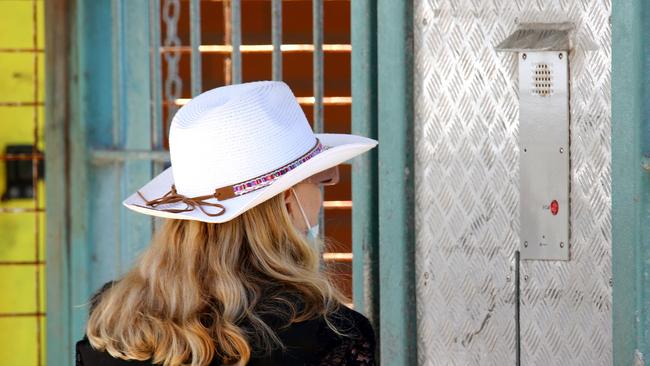
GCB: Will you be making submission to the police commissioner to have Burleigh Heads
designated as an ‘entertainment precinct’?
SWAN: If we need to, we will. However, the district’s operational approach towards Burleigh Heads has been to treat the area as if it were an entertainment precinct. This approach has been the most appropriate in the circumstances. Feedback was received from some of the business owners in that area, who said they were happy with the policing response and felt it was working.
GCB: Is the current CCTV coverage of Burleigh Heads linked to the Gold Coast City
Council (GCCC) camera head office at Surfers Paradise? If not, will you be making
submission to GCCC to have this done?
SWAN: We have a great relationship with the City of Gold Coast (Council) and consider the council an essential partner in preventing crime and harm. The City’s camera network is an excellent public safety system. We work very closely with the Council Camera Operators, using cameras across the city to quickly gain situational awareness of incidents and respond appropriately.
GCB: Regarding the imminent expansion of ‘light rail’ to Burleigh, do you feel this will
attract more crime to the location and exacerbate the current problems in the area?
SWAN: With the increased flow of people throughout our community we do tend to see a fluctuation in crime. This is why for many years we have been proactively running concentrated patrols and operation throughout our public transport network across the Gold Coast. This includes such policing operations as Luminous, Unison combined with a focus on wanding. The recent expansion of Jack’s Law has aided police in tackling these issues.
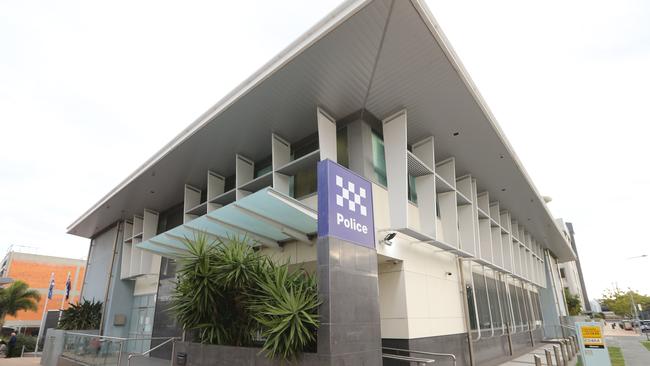
SOUTHPORT’S TOUGHEST FRONT POLICE DESK
GCB: At Southport, police have to attend a busy front reception in the CBD, they are
responsible for the watchhouse, they have to transport detainees to and from Gold Coast. You visit Southport station. What reception do you get, tell me about the cops there?
A/C SWAN: I enjoy my visits to Southport and stay longer than I intended. They are a very hardworking group, have a professional attitude, and work as a team. They have a supportive officer in charge and a good leadership team leading them. The members here are not afraid to speak to me and are upfront about their issues. I like the culture there, and the vibe is good. Our Southport officers are like many officers I see in this region – they turn up each shift, kit up, and do their best to keep their community safe.
GCB: What are the options at Southport? Can managing the watchhouse become a
separate entity?
A/C Swan: Good question. First, a bit of history. Southport Watchhouse was not a separate
establishment. Southport Station supplied many of the staff that worked in the
Watchhouse. This had an impact on the staffing of Southport and the Watchhouse. Last year,
we received approval for 15 new Watchhouse Officers. These officers are unsworn members
who hold certain custody powers. We now have Southport Watchhouse as a stand-alone and
independent establishment. As we recruited these Watchhouse Officers, we freed up sworn
members to return to Southport Station. This idea came from the station members themselves
and has been a positive step forward for the station.
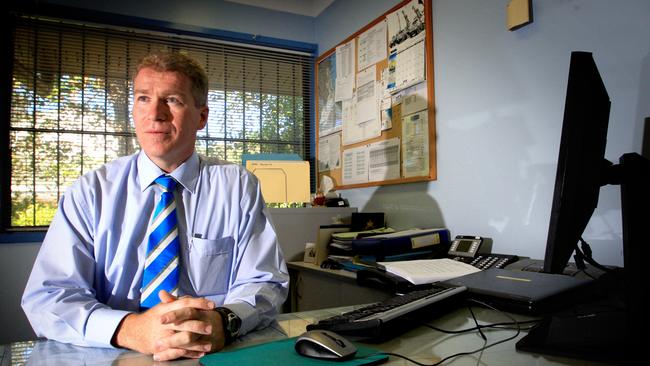
WE WILL KEEP YOU SAFE
GCB: There’s also a review of differing roster systems? How do you see the future?
SWAN: It is crucial that we consistently review our actions and are able to change and adapt quickly to meet the community’s needs. That’s the challenge ahead, and it is one of the reasons I am optimistic about the future of policing on the Gold Coast. Rest assured, we have great people doing great work every day, all in the name of keeping our city safe. We don’t always get it right. However, our members are doing their utmost for our community every day. I am proud of our police and hope you are too.

Add your comment to this story
To join the conversation, please log in. Don't have an account? Register
Join the conversation, you are commenting as Logout
Sharks unveil huge new stadium, $500m mega development
Southport Sharks has unveiled plans for a near-21,000-seat stadium and three residential towers in a massive redevelopment that could reshape the Gold Coast's sporting landscape.
Revealed: All Coast’s options for solving gridlock nightmare
The Gold Coast's population will surge by 350,000 in two decades, but the city's transport blueprint remains in limbo after light rail's dramatic cancellation. FIND OUT MORE